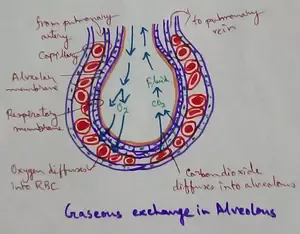Essay on Sarvepalli Radhakrishnan
Born in an impoverished Telugu Brahmin family in Thirutani, India on 5th September, 1888 Sarvepalli Radhakrishnan spent his formative years in Thirutani and Tirupati. His early education took place in a Christian Missionary School in his native place, Thirutani and he finished his higher education from Madras Christian College under extreme adverse circumstances. In 1916, he was appointed as assistant professor of philosophy in the Madras Residency College.
He was gifted was an acutely brilliant mind and believed the whole world to be an opportunity for education. He was a brilliant philosopher, a great idealist and a very inspiring teacher and a well-renowned author. He realized the significance of education as a passport to better one’s condition and outlook towards life, very early in his career. He was well-versed in Sanskrit, Hindi and the ancient works such as the Vedas and Upanishads.
So much revered he was as an eminent educationist that the renowned mathematician Srinivasa Ramanujan traveled all the way to seek his blessings before setting off for his maiden trip to Cambridge to pursue his life’s passion. He became the first Vice-President of free India, post-independence from the year 1952 to 1962 and the second President of India from 1962 to 1967. He served in a position of eminence in some of the prestigious institutions of Higher Education.
He was much idolized and respected for his approach towards teaching, his rapport with his students and the inspiring leadership he brought to the front in all his dealings with the future generation. He emphasized on the need for holistic education to inculcate the right values amongst the youth and take the country forward. His achievements are innumerable and he rose to an elevated position in the field of education and politics.
During his life time, he authored many books which are till date considered to be assets in their respective genre such as: Ethics of Vedanta and its Material Presupposition, The Philosophy of Rabindranath Tagore, Idealistic Views of Life, Eastern Religions and Western Thoughts, Kalki or Future Civilization, Indian Philosophy.
He also held the claim to be the first Indian to be appointed the Vice-Chancellor of the prestigious Benaras Hindu University. He was at the helm of Indian delegates to UNESCO between 1946 to 1950 and a member of its Executive Board in 1948.
Post-Independence, he was first appointed as the Ambassador to Soviet Union in 1949 where he stood upto Stalin and recounted the path of renunciation adopted by the mighty Indian Emperor, Ashoka. The two went on to share a warm camaraderie based on mutual respect till the end of his tenure in 1952. Soviet Union’s relationship with India since then went on to become stronger and closer.
He died on April 17, 1975 and it is a lasting tribute to the legacy of this man that his birthday, henceforth is celebrated as the Teacher’s Day in India, in which teachers, mentors and Gurus all over the nation are lauded and revered and shown immense respect for the service they render to the growth and development of a nation.
From Essay on Sarvepalli Radhakrishnan to HOME PAGE
Recent Articles
-
Formed Elements of Blood | Erythrocytes | ESR |Leukocytes |Neutrophils
Jan 15, 26 01:25 AM
Formed elements formed elements are constitute about 45 % of blood afeias haematocrit value packed cell volume mostly of red blood corpuscles and are of 3 types- erythrocytes, leukocytes and blood pla… -
What Is Plasma? | Blood Plasma | Proteins | Nutrients | Cholesterol
Nov 07, 25 10:29 AM
Blood is a mobile fluid which is a connective tissue and is derived from the mesoderm like cell any other connective tissue. Colour of blood is reddish and that flows inside the blood vessels by means… -
Disorders of Respiratory System | Tuberculosis | Pleurisy | Emphysema
Oct 28, 25 11:39 PM
Tuberculosis is very common disease and is caused by a type of bacteria called Mycobacterium tuberculosis. This disease causes different trouble in the respiration and infection of several parts of th… -
Regulation of Respiration | Respiratory Centres | Inspiratory Area |
Oct 14, 25 12:13 AM
Respiratory Centre is the area that controls the rate of respiration and it is observed to be located in medulla oblongata and pons. Respiratory Centre has the following will dispersed components like… -
Explain Transport of Gases | External Respiration | Tissue Respiration
Oct 09, 25 11:35 PM
In humans gaseous exchange is completed in the following ways the steps are - External Respiration or Breathing - Breathing in false taking in of Oxygen and giving out of carbon dioxide in the body. M…





New! Comments
Have your say about what you just read! Leave me a comment in the box below.